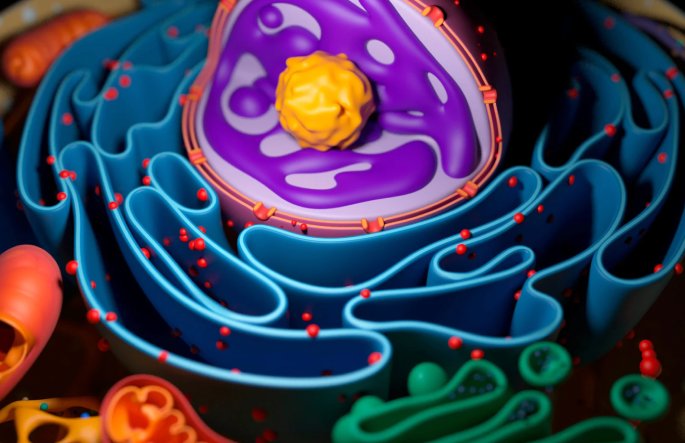Understanding Mitochondria and Their Role
Mitochondria are double-membraned organelles found in the cytoplasm of eukaryotic cells, including those in humans.
Their primary function is to generate energy in the form of ATP through a process known as oxidative phosphorylation. This process involves the electron transport chain, which occurs within the mitochondrial inner membrane.
Apart from energy production, mitochondria play other vital roles, such as regulating cellular metabolism, maintaining calcium levels, and participating in apoptosis (programmed cell death). To function optimally, mitochondria require a constant supply of essential nutrients and cofactors.
The Role of NAD+ and NMN
Nicotinamide Adenine Dinucleotide (NAD+) is a coenzyme that plays a central role in mitochondrial function. NAD+ is involved in redox reactions in the electron transport chain, facilitating the transfer of electrons and the production of ATP.
Additionally, NAD+ is a substrate for enzymes called sirtuins, which are involved in various cellular processes, including DNA repair, gene expression, and apoptosis.
As we age, NAD+ levels tend to decline, which can impair mitochondrial function and lead to a range of age-related health issues. This decline in NAD+ levels has led to interest in NAD+ precursors like NMN as potential ways to support mitochondrial health and overall vitality.
How NMN Boosts Mitochondrial Function
NMN is a precursor to NAD+, meaning it can be converted into NAD+ within cells. By increasing NAD+ levels, NMN can have a positive impact on mitochondrial function. Here’s how NMN helps energise your cells by supporting mitochondrial health:
Enhanced ATP Production: Increased NAD+ levels, achieved through NMN supplementation, can improve the efficiency of oxidative phosphorylation. This results in higher ATP production, providing more energy for cellular processes.
Mitochondrial Biogenesis: NMN may stimulate mitochondrial biogenesis, which is the process of creating new mitochondria. This can lead to an increased mitochondrial mass, contributing to improved cellular energy production.
DNA Repair and Protection: Mitochondrial DNA is vulnerable to oxidative damage due to its proximity to the electron transport chain. Higher NAD+ levels, supported by NMN, can enhance DNA repair mechanisms and protect mitochondrial DNA from damage.
Antioxidant Defense: Healthy mitochondria produce reactive oxygen species (ROS) as byproducts. Excessive ROS can damage cellular components, including mitochondria. NAD+ and NMN help activate antioxidant enzymes, reducing oxidative stress and maintaining mitochondrial health.
Improved Cellular Resilience: NAD+ is involved in the activation of sirtuins, which play a role in cellular stress resistance and longevity. By supporting sirtuin activity, NMN may enhance cellular resilience and longevity.
Latest Research on NMN and Mitochondrial Health
Several recent studies have explored the relationship between NMN and mitochondrial health, shedding light on its potential benefits. While more research is needed, these studies provide valuable insights into how NMN may improve mitochondrial function:
Aging-Related Mitochondrial Dysfunction: A study published in the journal Cell Metabolism in 2016 found that NMN supplementation improved mitochondrial function in mice and reversed certain aspects of aging-related decline in muscle strength and exercise capacity. This study suggested that NMN could counteract age-related mitochondrial dysfunction.
Cardiovascular Health: Research published in the journal Circulation Research in 2020 demonstrated that NMN supplementation improved mitochondrial function in the heart, potentially offering benefits for cardiovascular health. The study found that NMN enhanced energy production and reduced oxidative stress in cardiac mitochondria.
Metabolic Benefits: A study published in the journal Nature Communications in 2021 investigated the effects of NMN on obesity-related metabolic dysfunction in mice. The findings suggested that NMN could improve mitochondrial function in adipose tissue and enhance overall metabolic health.
Neuroprotection: Research published in the journal Nature Communications in 2020 explored NMN’s potential neuroprotective effects in a mouse model of Alzheimer’s disease. The study found that NMN treatment improved mitochondrial function in the brain, reducing cognitive decline and neuropathological changes.
Conclusion
Nicotinamide Mononucleotide (NMN) holds promise as a supplement that can support and enhance mitochondrial health. By increasing NAD+ levels, NMN helps improve ATP production, stimulate mitochondrial biogenesis, protect mitochondrial DNA, reduce oxidative stress, and enhance cellular resilience. While research on NMN and mitochondrial health is ongoing, the existing evidence suggests that NMN may play a valuable role in supporting vitality and overall well-being.
As with any supplement, it’s essential to consult with healthcare professionals before starting NMN supplementation, especially if you have underlying health conditions or are taking medications. Additionally, choosing high-quality NMN products from reputable sources and maintaining a holistic approach to health, including proper nutrition and exercise, can further contribute to optimal mitochondrial function and overall vitality.

